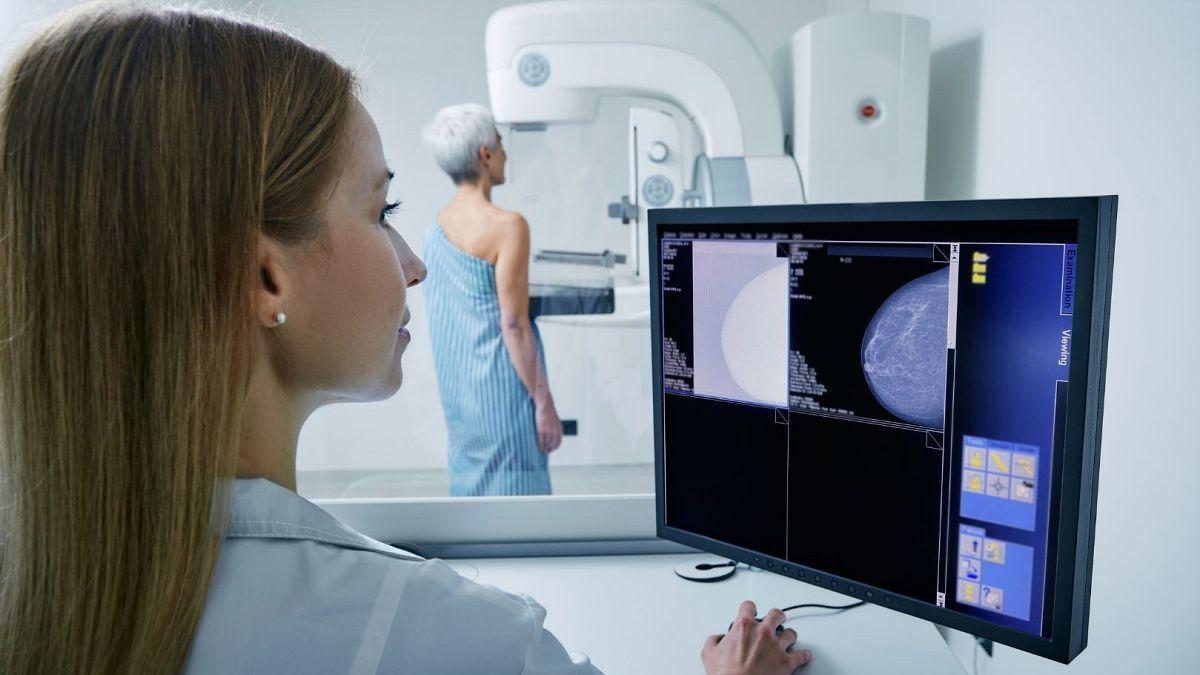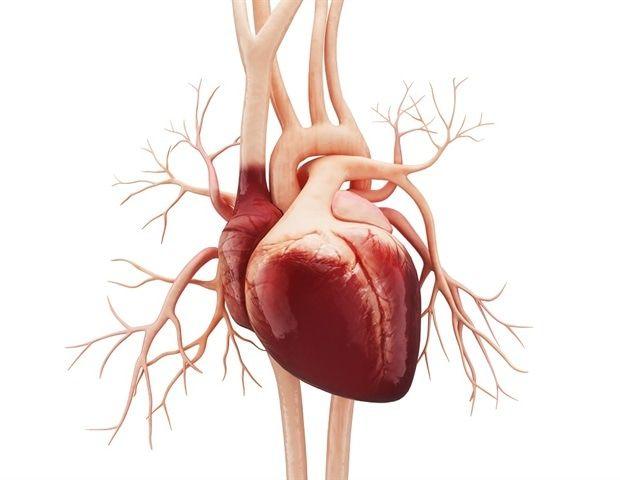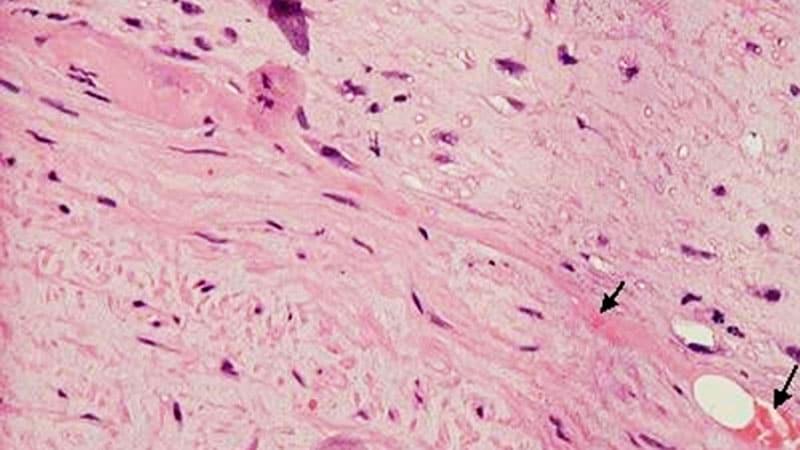AI Tool Uses Mammograms to Predict Women's Heart Health Risks
3 Sources
3 Sources
[1]
New AI tool uses mammograms to predict women's heart health risks
The researchers said the new tool could make it easier to detect heart health problems in areas with uneven access to medical care. Scientists in Australia have developed an artificial intelligence (AI) tool that can predict women's heart health risks by analysing their mammograms. The tool uses women's ages and mammogram images, which are routinely used to diagnose breast cancer, to predict their risk of being hospitalised or dying over the next 10 years due to heart failure or another cardiac problem. The researchers from Australian universities and The George Institute for Global Health, a medical research institute, said they created the AI tool because many women are not aware of or offered screenings to identify their heart disease risks. That's despite the fact that globally, cardiovascular diseases are responsible for about 35 per cent of deaths among women. "It's a common misconception that [heart disease] predominantly affects men, resulting in underdiagnosis and undertreatment of the condition in women," Clare Arnott, global director of The George Institute's cardiovascular programme, said in a statement. By combining screenings for heart disease and breast cancer, "we can identify and potentially prevent two major causes of illness and death at the same time," Arnott added. The AI tool was designed and tested using data from more than 49,000 women, and the study was published in the journal Heart on Wednesday. Tested against other models that require doctors to input more data about patients - for example their blood pressure and cholesterol levels - the new tool performed just as well, the researchers said. Arnott said the "key advantage" of the model is that "it doesn't require additional history taking or medical record data, making it less resource intensive to implement, but still highly accurate". The AI tool could help ensure women's heart health risks are detected in areas with uneven access to medical care, said Dr Jennifer Barraclough, one of the study's authors and a researcher at The George Institute. She cited rural Australia, where mobile mammography units travel to offer free breast cancer screenings to women. "We have shown the potential of this innovative new screening tool, so we now look forward to testing the model in additional, diverse populations and understanding potential barriers to its implementation," Barraclough said.
[2]
AI tool uses mammograms to predict women's 10-year heart health and cancer risk
Scientists from Australian universities and The George Institute for Global Health have developed an artificial intelligence tool that uses mammogram images and a woman's age to predict her risk of hospitalization or death from heart issues within the next 10 years. The tool was created to address the significant lack of routine heart disease screening for women, despite cardiovascular diseases being the cause of 35% of female deaths globally. The study was published in the journal Heart on September 17, 2025. The AI model analyzes mammograms, which are already performed regularly for breast cancer detection, to assess heart health. This approach avoids the need for separate cardiac examinations. The development was driven by the fact that many women are unaware of their cardiovascular risks due to a common, persistent misconception. "It's a common misconception that [heart disease] predominantly affects men, resulting in underdiagnosis and undertreatment of the condition in women." By integrating heart risk assessment into routine breast cancer screening, the tool provides a two-for-one evaluation in a single appointment, enabling earlier and more efficient preventative care. The model was trained and validated on data from over 49,000 women. Researchers found that its predictions were as accurate as existing models that require additional clinical information, such as blood pressure and cholesterol levels. This makes the new tool highly efficient and easier to implement. "The key advantage of the model is that it doesn't require additional history taking or medical record data, making it less resource intensive to implement, but still highly accurate." The tool has significant potential for use in regions with limited access to medical facilities. Dr. Jennifer Barraclough, a study author, highlighted its applicability for services like mobile mammography units in rural Australia. These units could provide both breast cancer and heart health screenings to remote populations without needing additional infrastructure. The research team now plans to test the model in more diverse populations to ensure its reliability and identify any potential barriers to widespread implementation, such as technical or regulatory challenges.
[3]
Can Mammograms Assess Women's Heart Health?
By Dennis Thompson HealthDay ReporterWEDNESDAY, Sept. 17, 2025 (HealthDay News) -- Regular mammograms might offer a "two-for-one" opportunity to protect women's health, a new study says. Mammograms can be used to successfully predict heart disease risk in women, on top of their ability to detect early breast cancers, researchers reported Sept. 16 in the journal Heart. A new AI model using mammogram scans can provide heart health risk scores as well as those developed by the American Heart Association (AHA) and other expert groups, researchers said. "By integrating cardiovascular risk screening with breast screening through the use of mammograms -- something many women already engage with at a stage in life when their cardiovascular risk increases -- we can identify and potentially prevent two major causes of illness and death at the same time," senior researcher Clare Arnott said in a news release. She is the global director of the cardiovascular program at the George Institute for Global Health in Australia. The AI provides its heart risk assessment using just a woman's mammogram and age. Doctors don't have to input other health info like blood pressure, cholesterol or blood sugar levels. "We found that our model performed just as well without the need for extensive clinical and medical data," Arnott said. Heart disease is the leading cause of death among women worldwide, accounting for about one-third of all deaths -- around 9 million a year, researchers said in background notes. Researchers trained the AI on routine mammograms from more than 49,000 women living in the Australian state of Victoria. During an average follow-up of about nine years, nearly 3,400 of the women suffered a heart attack, stroke or heart failure, or developed coronary artery disease, the study says. The AI reviewed the images for arterial calcium deposits and breast tissue density, both of which have been previously linked to heart disease risk, researchers said. The AI's resulting risk predictions were about as accurate as the PREVENT calculator used by the AHA to assess heart risk, researchers said. What's more, those calculators require docs to enter many different types of health data, such as blood pressure and cholesterol, to assess a woman's risk. "Our model is the first to use a range of features from mammographic images combined simply with age - a key advantage of this approach being that it doesn't require additional history taking or medical record data, making it less resource intensive to implement, but still highly accurate," Arnott said. The AI could particularly benefit women in countries that already have effective breast cancer screening programs, researchers said. For example, more than two-thirds (67%) of women in the U.S. and U.K. get their recommended mammograms, researchers noted. "We have shown the potential of this innovative new screening tool, so we now look forward to testing the model in additional, diverse, populations and understanding potential barriers to its implementation," lead researcher Jennifer Barraclough, a research fellow at the George Institute, said in a news release. More information The U.S. Centers for Disease Control and Prevention has more about women and heart disease. SOURCE: George Institute for Global Health, news release, Sept. 16, 2025
Share
Share
Copy Link
Australian researchers have developed an AI tool that can predict women's 10-year heart health risks using mammogram images and age. This innovative approach combines breast cancer and cardiovascular disease screening, potentially revolutionizing women's health care.
AI Tool Revolutionizes Women's Health Screening: Predicts Heart Risks from Mammograms
In a groundbreaking development, researchers from Australian universities and The George Institute for Global Health have created an artificial intelligence (AI) tool that can predict women's heart health risks by analyzing their mammograms. This innovative approach combines breast cancer and cardiovascular disease screening, potentially revolutionizing women's health care
1
2
.The AI Model: A Two-for-One Health Assessment

Source: Euronews
The new AI tool uses women's ages and mammogram images to predict their risk of hospitalization or death due to heart failure or other cardiac problems over the next decade. This dual-purpose screening method addresses a significant gap in women's health care, as many women are not routinely offered or aware of heart disease risk assessments
1
.Addressing a Common Misconception
Cardiovascular diseases are responsible for approximately 35% of deaths among women globally. However, there's a persistent misconception that heart disease primarily affects men, leading to underdiagnosis and undertreatment in women. The new AI tool aims to bridge this gap by integrating heart risk assessment into routine breast cancer screening
2
.Development and Validation
The AI model was designed and tested using data from over 49,000 women in the Australian state of Victoria. During an average follow-up of about nine years, nearly 3,400 of these women experienced heart-related issues. The study, published in the journal Heart, demonstrated that the AI tool's predictions were as accurate as existing models that require additional clinical information
3
.Efficiency and Accessibility
A key advantage of this new tool is its simplicity and efficiency. Unlike other risk assessment models that require doctors to input extensive patient data, this AI tool only needs the mammogram image and the woman's age. This makes it less resource-intensive to implement while maintaining high accuracy
1
3
.Related Stories
Potential Impact on Healthcare Accessibility
The tool shows promise in improving healthcare access in areas with limited medical facilities. For instance, it could be integrated into mobile mammography units that provide free breast cancer screenings in rural Australia. This would allow these units to offer both breast cancer and heart health screenings without requiring additional infrastructure or resources
2
.Future Directions
While the initial results are promising, the research team plans to test the model in more diverse populations to ensure its reliability and identify potential implementation barriers. They aim to understand and address any technical or regulatory challenges that might arise in widespread adoption
2
3
.References
Summarized by
Navi
[3]
Related Stories
AI-Powered Mammograms: A Dual Screening Tool for Breast Cancer and Heart Health
21 Mar 2025•Health

AI Model Identifies Female Patients at Higher Risk of Heart Disease Using ECG Analysis
26 Feb 2025•Health

AI Revolutionizes Breast Cancer Detection: New Tools Predict Risk and Catch Missed Tumors
22 Oct 2025•Health

Recent Highlights
1
ByteDance's Seedance 2.0 AI video generator triggers copyright infringement battle with Hollywood
Policy and Regulation

2
Demis Hassabis predicts AGI in 5-8 years, sees new golden era transforming medicine and science
Technology

3
Nvidia and Meta forge massive chip deal as computing power demands reshape AI infrastructure
Technology





